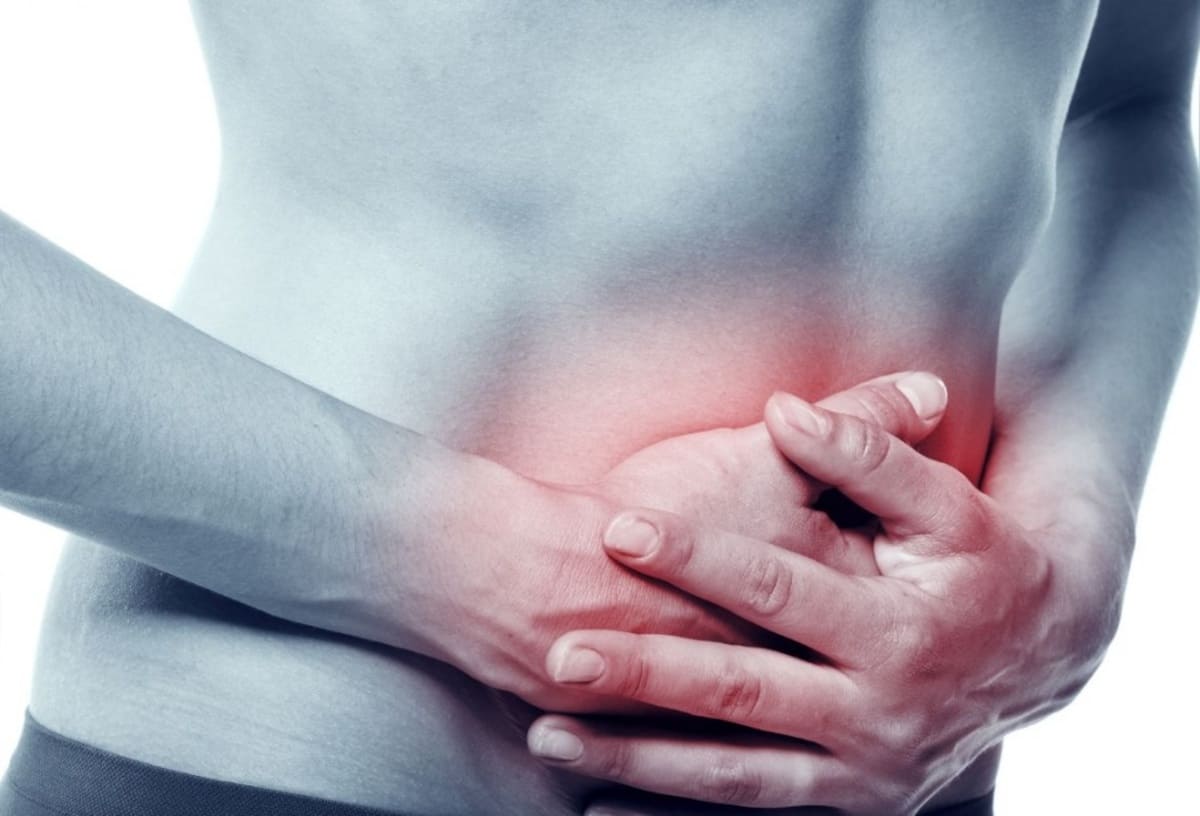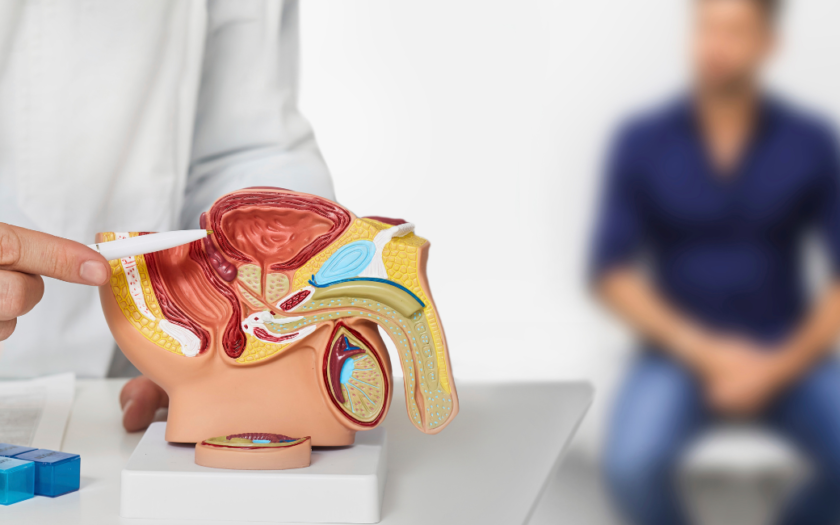Irritable bowel is a condition that is accompanied by digestive disorders, pain and discomfort in the abdomen, and defecation disorders.
When bowel dysfunction is present for more than three months, a doctor may diagnose irritable bowel syndrome.
What is irritable bowel syndrome?
Irritable bowel syndrome (IBS) is a functional disorder of the intestine without its pathological changes (violation of digestibility of food, absorption of nutrients, formation of fecal masses). Pathology is chronic and alternates between periods of exacerbation and remission.
Causes of irritable bowel
Irritable bowel syndrome can be triggered by external factors affecting the digestive system. Causes of irritable bowel syndrome:
- constant violations in the diet (irregular meals, prolonged fasting, systematic overeating);
- transferred intestinal infections;
- intestinal dysbacteriosis (disturbance of the balance of microorganisms in the intestine);
- imbalance of biologically active substances regulating intestinal function (e.g. histamine, serotonin);
- improper nutrition (abuse of alcohol, heavy food, fast food).
Also to intestinal dysfunction can lead to a violation in the central nervous system, which regulates the functions of the GI tract. Irritable bowel syndrome can be caused by psychological problems (e.g., stress or increased anxiety), because during the period of psychoemotional stress there is an increased production of actively biological substances that affect the motor and evacuatory function of the intestine.
Symptoms of irritable bowel disease
The first symptoms of IBS are irregular stools (constipation or diarrhea), pain and heaviness in the intestines. Symptoms of irritable bowel:
- fecal masses with blood, mucus, remains of undigested food;
- increased gas in the intestines;
- a feeling of incomplete emptying of the bowel immediately after defecation;
- discomfort and pain in the abdomen;
- painful sensations in the rectal area.
With IBS there may be headache, rapid fatigue, loss of strength. In women, the symptoms of irritable bowel syndrome can worsen during menstruation due to hormonal changes that cause abdominal cramps and bloating, fluid retention in the body.
At the signs of irritable bowel syndrome it is necessary to consult a gastroenterologist. Without treatment and control, intestinal dysfunction can provoke consequences: traumatization of the rectal mucosa and the development of proctologic diseases (for example, hemorrhoids or anal fissure). Also with frequent exacerbations of IBS can develop neurosis or depression, since intestinal cramps and gas cause discomfort and inconvenience.
How does irritable bowel syndrome hurt?
Irritable bowel syndrome hurts in the lower abdomen, and the pain can also go to the anus and left subcostal area. Painful sensations and discomfort in the intestines, as a rule, increase immediately after eating and pass after defecation and passing gas.
Pain in irritable bowel syndrome is variable: for a long time there may be a moderate aching pain, in periods of exacerbation may appear spasms and cramps in the intestinal area. Exacerbations are triggered by stress, overwork, overeating, heavy food abuse or consumption of intolerant foods (e.g. lactose, casein, gluten).
Irritable bowel syndrome in children
Irritable bowel syndrome in children can be provoked by improper nutrition (for example, early introduction of complementary foods, inappropriate formula, use of intolerant foods, abuse of junk food). Also, IBS in a child can occur against the background of diseases of the gastrointestinal tract: dysbacteriosis, intestinal infections, inflammation of the colon and worm infestation.
Symptoms of irritable bowel in children are abdominal pain and increased gas formation, which pass after the act of defecation. Stool disturbance in children is characterized by alternating constipation and diarrhea. Also with IBS in children there is irritability, tearfulness, sleep disturbance, increased sweating. Treatment of irritable bowel in a child is prescribed by a pediatrician or gastroenterologist on an individual basis, taking into account the causes and symptoms of the disorder, age and the presence of comorbidities.
Diagnosis of irritable bowel syndrome
Diagnosis of irritable bowel syndrome is performed by a gastroenterologist. Diagnosis of IBS includes:
- collection of anamnesis, examination and palpation of the abdomen by a gastroenterologist;
- general and biochemical blood tests;
- analysis for celiac disease (gluten intolerance);
- coprogram, analysis for dysbacteriosis;
- stool analysis for worm infestation;
- colonoscopy (instrumental examination of the colon);
- gastroscopy (endoscopic examination of the esophagus, stomach, duodenum to rule out GI diseases, such as gastritis, duodenitis, colitis);
Ultrasound of the abdominal and pelvic organs (to examine the intestines and identify associated diseases of internal organs).
Based on the results of the examination, the doctor may also prescribe consultations with other specialists, such as a neurologist or proctologist. Complex diagnostics allows to exclude inflammatory bowel diseases and pathologies of other digestive organs and prescribe treatment.
How to treat irritable bowel syndrome?
Treatment of irritable bowel syndrome is prescribed by a gastroenterologist, based on the results of the examination, individual characteristics of the body, the presence of concomitant diseases and symptoms. Irritable bowel syndrome can be cured with the help of complex therapy, which may include:
- antispasmodics (drugs to reduce the tone and motor activity of smooth muscles);
- drugs to regulate intestinal motility;
- drugs that normalize stool (laxatives, enveloping, consolidating);
- enzyme preparations (to normalize digestion);
- probiotics (to restore the balance of intestinal microflora);
- absorbents and vetrogonic agents (to get rid of flatulence);
- psychological help and drugs to support the nervous system (sedatives, antidepressants).
Medication treatment of irritable bowel syndrome, dosage and duration of the course should be prescribed by a doctor. A big role in the treatment of intestinal dysfunction is played by diet, which is to exclude foods that provoke symptoms of the disorder.
Diet for irritable bowel syndrome
The diet for irritable bowel syndrome consists of avoiding foods that cause increased gas in the intestines, abdominal bloating, constipation or diarrhea. It is also important to avoid drinks and foods that irritate the intestinal mucosa (for example, fruits with a high fructose content).
Nutrition in irritable bowel syndrome
| Can’t eat for irritable bowel syndrome | You can eat for irritable bowel syndrome |
|---|---|
| fatty, smoked and fried foods (fatty meats, rich broths, marinades, spices) | boiled, baked, steamed foods (boiled vegetables, lean meats and fish) |
| alcohol, caffeinated and carbonated drinks, whole milk | lactose-free milk (almond, rice, coconut), yogurt, kefir, hard cheeses |
| legumes, cabbage, baked goods, confectionery | porridge (oatmeal, pearl, buckwheat, millet, quinoa, corn) |
| apples, pears, cherries, apricots, plums, peaches | bananas, oranges, tangerines, melon, kiwi, pineapple |
| artificial sweeteners (chewing gum, candy) | almonds, peanuts, walnuts and pine nuts |
In irritable bowel syndrome with constipation, it is necessary to drink enough water (at least one and a half liters per day) and increase fiber intake (whole grain products, bran, rye bread). The menu for irritable bowel syndrome with diarrhea should not contain raw vegetables, dairy products, flour, as they can irritate the digestive system, cause fermentation and aggravate liquid stools. It is also important in intestinal problems to observe the mode of eating: eat small portions, avoid overeating and starvation, eat dinner at least two hours before bedtime.
It is important to exclude from the diet intolerant foods, based on the individual characteristics of the body. The right menu can be selected by introducing a food diary – keeping track of the foods consumed and monitoring the reaction to them.
Nutrition in irritable bowel syndrome should be balanced (with a sufficient amount of vitamins and minerals), preference should be given to natural products (with the exclusion of dyes, stabilizers, preservatives).



